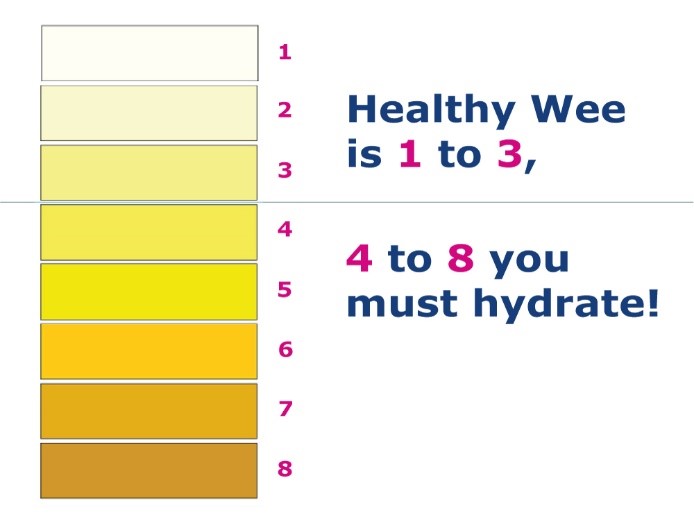As health professionals, we have collected many, many urine samples over the years and one thing we know for sure is that many, many of us tend to be dehydrated a lot of the time.
Water accounts for about 65% of our body weight whilst our brains are 73% water. Water performs crucial roles such as carrying nutrients and waste products between our major organs, helping regulate body temperature, lubricating our moving parts, and acting as a shock absorber.
Dehydration reflected by a 1-2% reduction in body weight can reduce our ability to concentrate, reduce everyday mental performance and increase feelings of aggression or irritation
According to the National Hydration Council, 12% of tiredness and fatigue cases presenting at GP’s surgery are believed to be due to dehydration. Staggeringly, statistics revealed that 60 per cent of the UK drink just one glass of water or less a day.
As we don’t have a water storage facility in our body, it must be replaced regularly by water from our diet. Official NHS guidance suggests adults should drink 8-10 200ml glasses of fluid a day and children 6-8 glasses. 70 – 80% of daily water intake should come from drinks, the remaining 20 – 30 % should come from food.
What should I drink?
While all fluid counts towards this target, water is one of the healthiest ways to hydrate. It doesn't have any calories or sugar and is free if you drink tap water. Try adding add slices of lime, orange, lemon, cucumber or even mint for something different or if you do not like plain water.
Coconut water is now very popular. It contains potassium, sodium and natural sugars and is sometimes used to treat dehydration but be mindful of the natural sugar content.
Fruit Juice and smoothies can provide one of your 5 a day but they do contain lots of natural sugar and can be acidic – not so good for your teeth.
If you do choose fizzy drinks or squash, choose the ‘no added sugar’ varieties. Some fizzy drinks can contain 9 teaspoons of sugar in a 330 ml can.
Tea and coffee can contribute to your overall fluid intake. Both contain caffeine so moderation here. Caffeine can act as a mild diuretic which increases the amount you wee.
Alcohol does not really count - it acts as a diuretic and you can become dehydrated if you drink too much alcohol. Always drink water or other soft drinks alongside alcohol.
Signs of dehydration
If you feel thirsty, chances are you are already dehydrated and this is your body’s way of telling you. Another good indicator is the colour of your wee. Take a look at the wee chart to see if you have healthy wee or need to hydrate.

Other signs of being dehydrated include a headache, feeling tired, weak and dizzy, dry mouth and lips and if severe, cramps and feeling confused.
So, to sum up concisely in the words of a Slovakian Proverb:
‘Pure water is the world's first and foremost medicine’
Used with the kind permission of Alison Lambert who is an Occupational Health Nurse at Workfit.